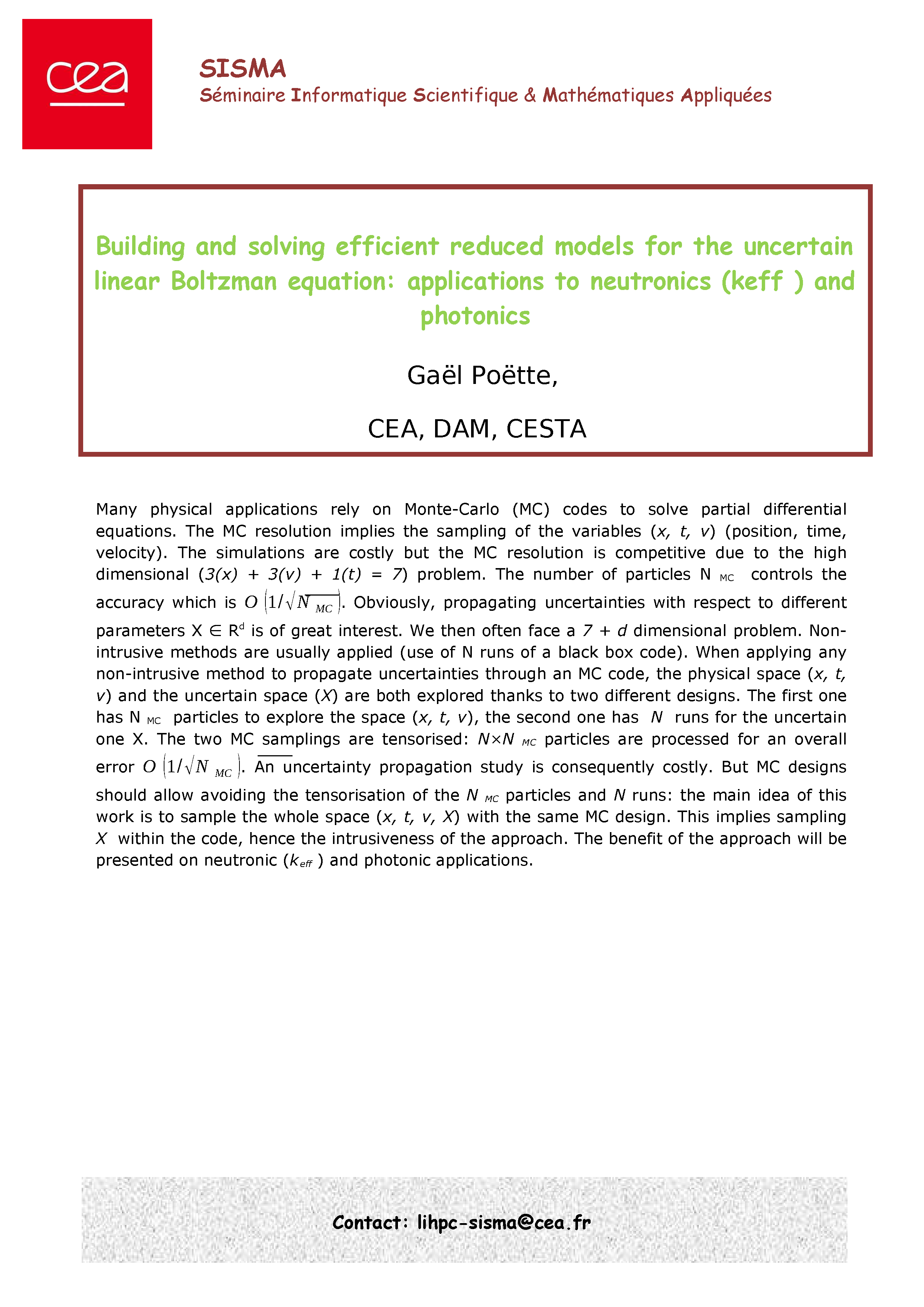Many physical applications rely on Monte-Carlo (MC) codes to solve partial differential equations. The MC resolution implies the sampling of the variables $\mathscr (x,t,v)$ (position, time, velocity). The simulations are costly but the MC resolution is competitive due to the high dimensional $\mathscr (3(x)+3(v)+1(t)=7)$ problem. The number of particles $N_{MC}$ controls the accuracy which is $\mathcal O$ $\left( \dfrac{1}{\sqrt{N_{MC}}} \right)$. Obviously, propagating uncertainties with respect to different parameters ${X}$ ∈ $\mathbb {R}^d$ is of great interest. We then often face a $\mathscr 7+d$ dimensional problem. Non-intrusive methods are usually applied (use of ${N}$ runs of a black box code). When applying any non-intrusive method to propagate uncertainties through an MC code, the physical space $\mathscr (x,t,v)$ and the uncertain space ${(X)}$ are both explored thanks to two different designs. The first one has $N_{MC}$ particles to explore the space $\mathscr (x,t,v)$, the second one has ${N}$ runs for the uncertain one ${X}$. The two MC samplings are tensorised: ${N}\times N_{MC}$ particles are processed for an overall error $\mathcal O$ $\left( \dfrac{1}{\sqrt{N_{MC}}} \right)$. An uncertainty propagation study is consequently costly. But MC designs should allow avoiding the tensorisation of the $N_{MC}$ particles and ${N}$ runs $\mathscr [3, 4, 1, 2, 5, 6]$: the main idea of this work is to sample the whole space $\mathscr (x,t,v,X)$ with the same MC design. This implies sampling ${X}$ within the code, hence the intrusiveness of the approach. The benefit of the approach will be presented on neutronic ($k_{eff}$) and photonic applications.
Bibliography
- Jose Antonio Carrillo and Mattia Zanella. Monte Carlo gPC methods for diffusive kinetic flocking models with uncertainties . 2019. preprint. pages 1
- Lorenzo Pareschi and Mattia Zanella. Monte Carlo stochastic Galerkin methods for the Boltzmann equation with uncertainties: space-homogeneous case, 03 2020. pages 1
- Gaël Poëtte. A gPC-intrusive Monte Carlo scheme for the resolution of the uncertain linear Boltzmann equation. Journal of Computational Physics, 385:135 – 162, 2019. pages 1
- Gaël Poëtte. Spectral convergence of the generalized polynomial chaos reduced model obtained from the uncertain linear boltzmann equation. Mathematics and Computers in Simulation, 177:24–45, 2020. pages 1
- Gaël Poëtte. Efficient uncertainty propagation for photonics: Combining implicit semi-analog monte carlo (ismc) and monte carlo generalised polynomial chaos (mc-gpc). Journal of Computational Physics, page 110807, 2021. pages 1
- Gaël Poëtte and Emeric Brun. Efficient uncertain keff computations with the monte carlo resolution of generalised polynomial chaos based reduced models. Journal of Computational Physics, 456:111007, 2022. pages 1




